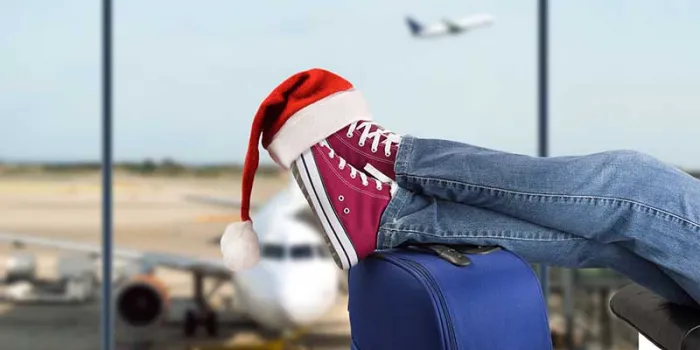One of the joys of the holiday season is visiting with family and friends. But traveling can also be stressful, especially when managing a bleeding disorder. There’s a lot to take into account, including safely transporting your child’s medication and making sure you stay on top of treatment away from home when your family’s normal routine is disrupted.
To help your holiday travels (or travel any time of year) go as smoothly as possible, be sure to prepare in advance. With proper planning, you can enjoy your time away with loved ones and be confident you’re doing all you can to keep healthy. Below are a few helpful tips.
1. Bring a travel letter
A travel letter is a brief explanation of your child’s bleeding disorder and a description of the medications and supplies you have with you and why you need them. Your hemophilia treatment center (HTC) or your hematologist can provide you this letter. The travel letter is not only useful for airport security, but it’s also helpful should you need to visit a doctor or the emergency room while you’re traveling.
View a sample travel letter.
2. When flying, keep medicine and infusion supplies in a carry-on bag
Don’t put medicine in checked luggage. Stay organized, and make it easier to get through airport security, by stowing all your supplies in a dedicated “medical travel bag.” And don’t forget to pack a sharps disposal container.
3. If you’re traveling out of state, check your insurance coverage
Your insurance plan probably doesn’t have restrictions on coverage outside of your local area, but it’s always better to double-check before you travel rather than be surprised.
4. Know the closest HTC to your destination
Should you need medical help while you’re far from home, you’ll want to know where to go. The Centers for Disease Control and Prevention has a list of US HTCs. Your home HTC can connect with the HTC staff at your destination before your trip to pass along your information and alert them to your travel plans.
5. Stay on top of treatment
Before you travel, talk with your treatment team to devise a medication schedule for while you’re away. Based on where you’re going and what activities you have planned, your team may advise you to change your typical routine. Visits with relatives and friends are full of activities, but it’s important to stick to the schedule. Alerting your hosts in advance that you may need to take some time out from the fun to help your child infuse helps to set expectations for your visit. And don’t forget to update your treatment log.
Bon voyage!
For more information on traveling with a bleeding disorder, see NHF’s Steps for Living.

